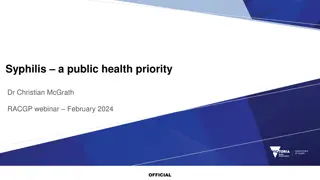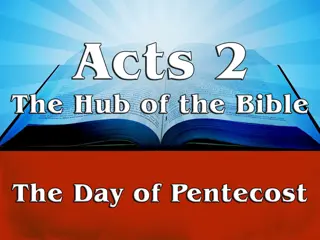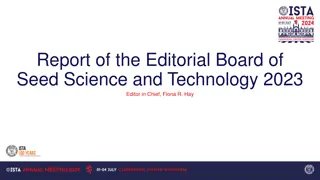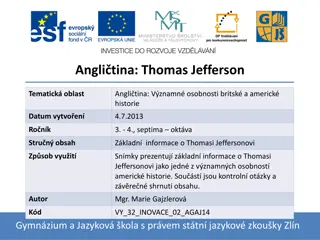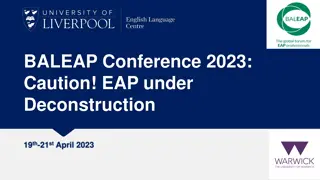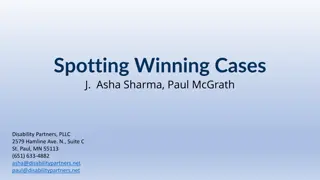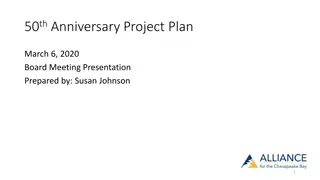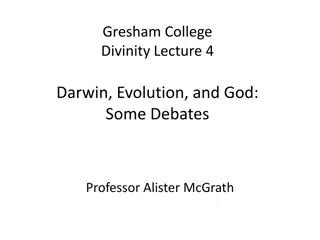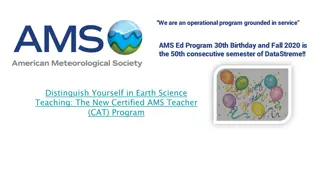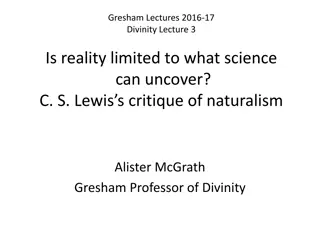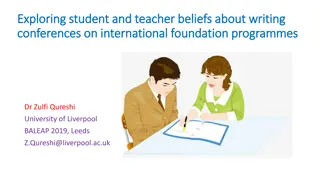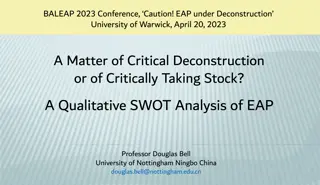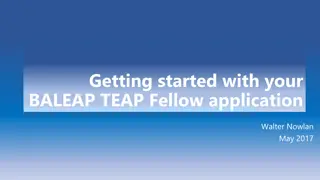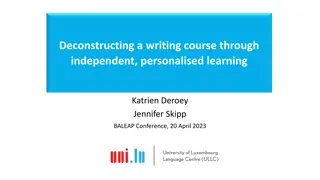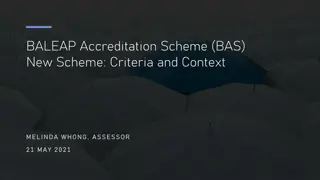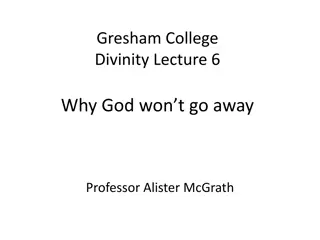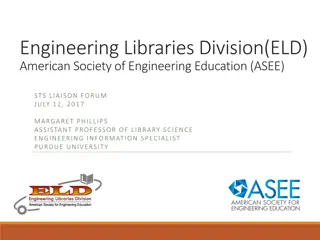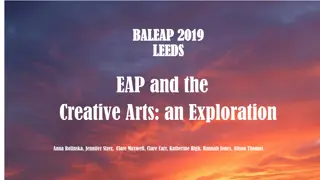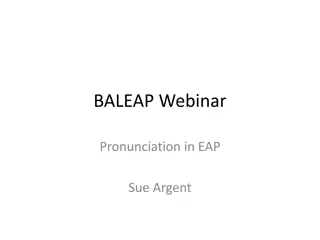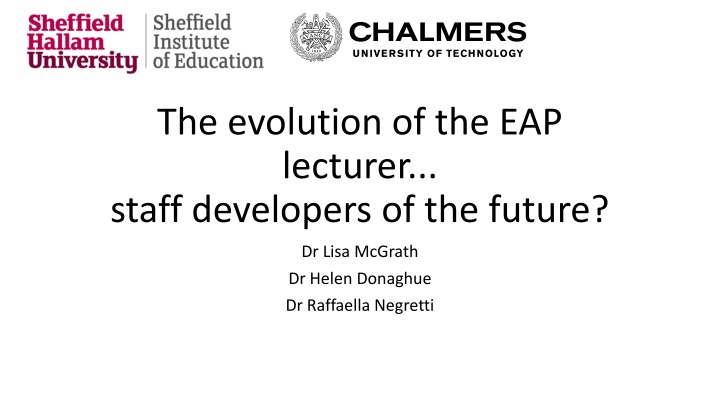
EAP Lecturer Evolution: Bridging Disciplinary Literacy Gaps
Explore the future role of EAP lecturers as staff developers in enhancing disciplinary literacy among subject specialists. Discover how genre pedagogy can be used to make tacit knowledge of disciplinary literacy explicit, fostering collaboration and effective teaching practices.
Download Presentation

Please find below an Image/Link to download the presentation.
The content on the website is provided AS IS for your information and personal use only. It may not be sold, licensed, or shared on other websites without obtaining consent from the author. If you encounter any issues during the download, it is possible that the publisher has removed the file from their server.
You are allowed to download the files provided on this website for personal or commercial use, subject to the condition that they are used lawfully. All files are the property of their respective owners.
The content on the website is provided AS IS for your information and personal use only. It may not be sold, licensed, or shared on other websites without obtaining consent from the author.
E N D
Presentation Transcript
The evolution of the EAP lecturer... staff developers of the future? Dr Lisa McGrath Dr Helen Donaghue Dr Raffaella Negretti
Give someone a fish and you feed them for a day; teach someone to fish and you feed them for a lifetime
Academic literacies do not exist outside of a discipline and cannot be brought in by experts (Benzie et al., 2017)
The trouble with fish... Academic literacy often constitutes tacit or hidden knowledge (Haggis 2006, p. 530) Subject specialists may struggle to articulate their values and expectations (Dysthe 2002) Most lecturers do not have expertise in teaching academic literacy (Jenkins and Wingate 2015) Interactions between subject and literacy specialists sometimes lack a constructive collaboration between equals (Elton 2010, p. 151)
What if.... Academic literacies do not exist outside of a discipline and cannot be brought in by experts (Benzie et al., 2017) ...disciplinary literacy was taught by disciplinary specialists? Disciplinary literacy often constitutes tacit or hidden knowledge (Haggis 2006, p. 530). ...the EAP lecturer could design and deliver tasks to make disciplinary lecturers tacit knowledge of disciplinary literacy more explicit? Subject specialists may struggle to articulate their values and expectations (Dysthe 2002) ...the EAP lecturer introduced concepts from genre pedagogy (e.g. Tardy 2009) to provide disciplinary lecturers with a framework and vocabulary to discuss disciplinary literacy with their students? Most lecturers do not have expertise in teaching academic literacy (Jenkins and Wingate 2015) ...instead of working with students, EAP lecturers worked with disciplinary lecturers to design tasks drawing on techniques from genre pedagogy using the disciplinary lecturers knowledge and ideas as a starting point, encouraging the to integrate disciplinary literacy development into their practice. Interactions between subject and literacy specialists sometimes lack a constructive collaboration between equals (Elton 2010, p. 151) ...the EAP lecturer was also a staff developer, supporting disciplinary specialists to develop their teaching practice in the area of disciplinary literacy.
Teaching how to fish on the PGdipHE Metacognitive tasks to make tacit knowledge of disciplinary literacy explicit Meeting 3: reflection, what next? Workshop on genre pedagogy Teaching materials refined and delivered Meeting 1: initial ideas and planning Teaching materials developed by disciplinary lecturer Meeting 2: refining (McGrath et al, 2019; McGrath et al, in preparation)
The future of EAP? Give someone a fish and you feed them for a day; teach someone to fish and you feed them for a lifetime
References Benzie H., Pryce A., & Smith K. (2016). The wicked problem of embedding academic literacies: exploring rhizomatic ways of working through an adaptive leadership approach. Higher Education Research and Development 36 (2) 227-240. Elton, L. (2010). Academic writing and tacit knowledge. Teaching in higher education, 15(2), 151-160. Jenkins, J., & Wingate, U. (2015). Staff and students perceptions of English language policies and practices in international universities: a case study from the UK. Higher Education Review, 47(2), 47-73. Haggis, T. (2006). Pedagogies for diversity: Retaining critical challenge amidst fears of dumbing down . Studies in Higher Education, 31(5), 521-535. McGrath, L., Negretti, R., & Nicholls, K. (2019). Hidden expectations: scaffolding subject specialists genre knowledge of the assignments they set. Higher Education, 78(5), 835-853. McGrath, L., Donaghue, H., & Negretti, R. (in preparation) Fostering subject lecturers commitment and capacity to engage with students academic literacies development Tardy, C. (2009). Building genre knowledge. Parlor Press LLC.

![[PDF⚡READ❤ONLINE] Zen Mind, Beginner's Mind: 50th Anniversary Edition](/thumb/20459/pdf-read-online-zen-mind-beginner-s-mind-50th-anniversary-edition.jpg)
